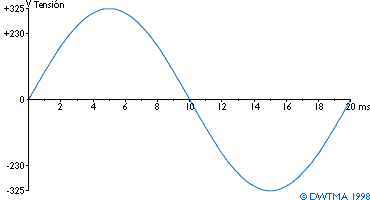Human Rights Example
Right / / November 13, 2021
Human rights are defined by the United Nations (UN) as the rights inherent to all human beings, without any distinction of nationality, place of residence, sex, national or ethnic origin, color, religion, language or any other condition. Thus, all people have the same human rights, without any discrimination.
Brief history of human rights
After the Second World War, occurred between 1939 and 1945, the countries of Europe were in ruins. Millions of people had died, and many more had no home, family, or food. The world was experiencing the consequences of a long war that affected a large number of countries.
Thus, in April 1945, delegates from fifty countries decided to meet in San Francisco in the hope of creating an international body that would promote peace and prevent future wars. In the preamble to the Constitutive Act of this body, they established “We, the people of the United Nations, are determined to protect the generations to come from the scourge of war, which twice in our lives (the two world wars), has produced incalculable suffering to the humanity". At this meeting, the United Nations was created, which came into force on October 24 of that year.
In 1948, the UN had a new branch, the Human Rights Commission. In that year, the Commission drafted a document that became the Universal Declaration of Human Rights, which is the International Magna Carta for all humanity. The Universal Declaration of Human Rights entered into force on December 10, 1948.

The articles of the Universal Declaration of Human Rights
The UN General Assembly proclaims the Universal Declaration of Human Rights “as a common ideal for which all peoples and nations should to strive, so that both individuals and institutions, constantly drawing inspiration from it, promote, through teaching and education, respect for these rights and freedoms, and ensure, by progressive measures of a national and international nature, their recognition and application of a national and its universal and effective recognition and application, both among the peoples of the Member States and among those of the territories placed under its jurisdiction ”.
In its preamble, this statement mentions that “ignorance and contempt for human rights have resulted in acts of outrageous barbarism for the conscience of humanity, and the arrival of a world where human beings enjoy freedom of expression and belief and are free from fear and misery has been proclaimed as the highest aspiration of the people common".
The Universal Declaration of Human Rights consists of 30 articles. Here are some examples of human rights.
30 examples of human rights:
- All human beings they are born free and equal in dignity and rights.
- The right to life, to the liberty and security of his person.
- Any type of slavery or servitude is prohibitedTherefore, any person who performs work for another must receive adequate remuneration.
- No person may be subjected to torturecruel, inhuman or degrading treatment or punishment.
- All human beings have the right to have their legal personality recognized. Legal personality consists in recognizing that someone (in this case a person, but it can also be a company or institution) has rights and obligations.
- All people have right to protection of the law, and are protected against all acts of discrimination.
- All people have right to an effective remedy before the competent national courts, that protect them against acts that violate their fundamental rights recognized by the constitution or by law.
- No one may be arbitrarily detained, imprisoned or exiled (for no reason or process).
- Everyone has the right, under conditions of full equality, to be heard publicly and fairly by an independent and impartial tribunal, for the determination of her rights and obligations or for the examination of any accusation against her in criminal matters.
- Anyone who commits a crime, you have the right to be presumed innocent until proven guilty.
- No person shall be subjected to arbitrary interference in his private life, his family, his home or his correspondence, or attacks on his honor or his reputation. Everyone has the right to the protection of the law against such interference or attacks.
- All people have the right to circulate freely and choose your residence in the territory of a country. Likewise, all people have the right to leave any country, including their own, and to be able to return to their country.
- In the event of persecution, everyone has the right to seek asylum and to enjoy this in any country.
- All people have right to have a nationality. On the other hand, no one shall be arbitrarily deprived of his nationality or of the right to change his nationality.
- Men and women, from a certain age, have right to marry and found a family, and will enjoy equal rights regarding marriage, during marriage and in case of dissolution of marriage.
- All people have right to own property, either individually or collectively.
- The right to freedom of thought, belief or religion.
- All people have the right to freedom of expression and opinion.
- All people have the right to freedom of assembly and association peaceful, but no one can be forced to belong to an association.
- All people have the right to participate in the government of your country, either directly or through freely chosen representatives.
- All people have the right to social Security.
- All people have right to work, and the free choice of the latter.
- All people have right to equal pay for equal work, regardless of race, gender, etc.
- All people have right to rest and to the enjoyment of free time.
- Everyone has the right to have an adequate standard of living to ensure her and her family's health and well-being.
- Every person has education rights, which must be free and mandatory.
- Every person has right to take part in cultural life of their community and to enjoy the arts and scientific progress.
- All people have the right to a social and international order is established in which the rights and freedoms proclaimed in this Declaration become fully effective.
- All people have duties towards your community.
- Nothing that is written in the Declaration of Human Rights may be interpreted in the sense that it confers any rights on the State, a group or a person, to undertake and develop activities or perform acts tending to the suppression of any of the rights and freedoms proclaimed in the Statement.
Other articles on human rights that may interest you:
- Characteristics of human rights



